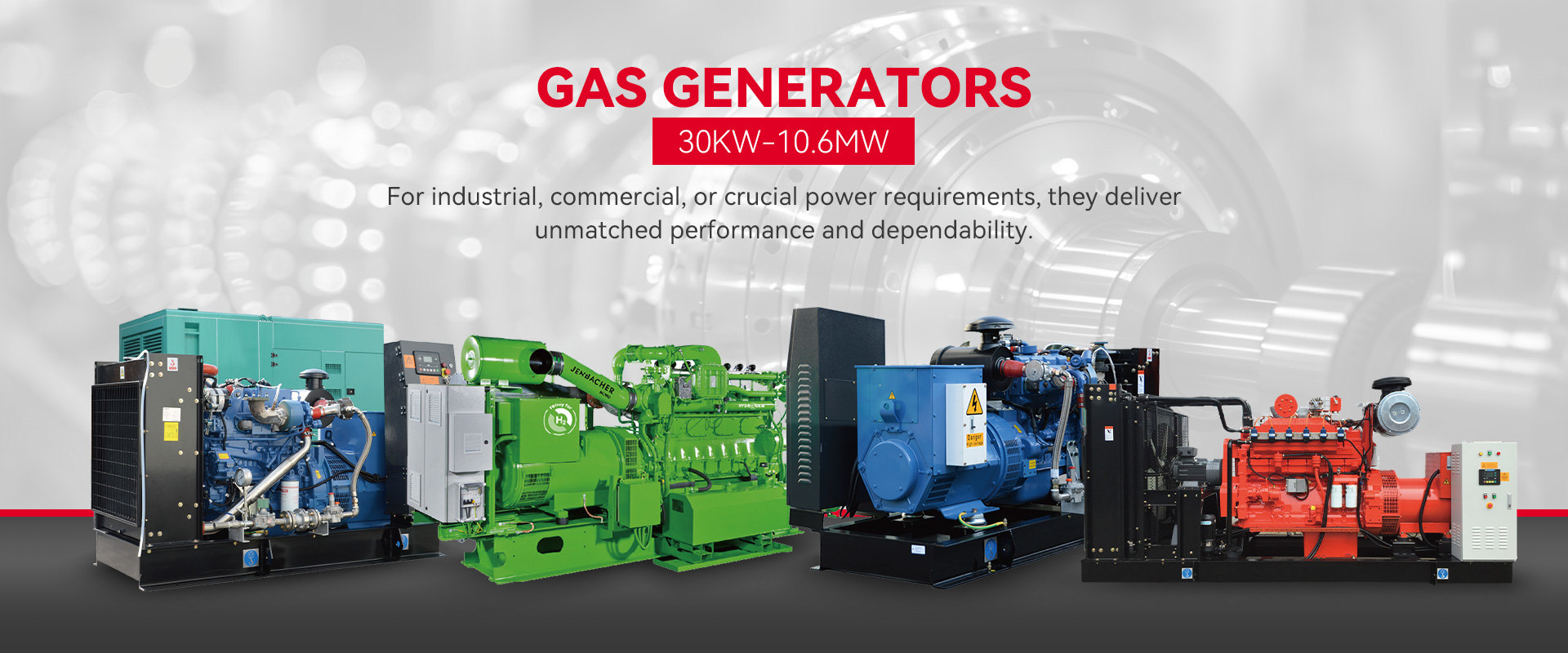Natural Gas Or Diesel: Which Generator Set Is Meets Your Needs?
In the arena of backup power generation, two prominent options stick out: gas main and diesel generators. If the power fades, and also the dependence on it will become critical, selecting the best generator set will make a huge difference. But wait, how can you decide between gas main and diesel generators? Every one has its own pair of benefits and drawbacks, and the choice ultimately is determined by your particular needs and circumstances.

In the following paragraphs, we will learn about the distinctive features, advantages, and disadvantages of gas and diesel generator sets, helping you to produce a well-informed decision on what option aligns best along with your needs.
Gas main Generators
Advantages
Cleaner Emissions: One of the greatest features of natural gas generators is lower environmental impact. When gas main burns, it makes fewer harmful emissions, such as particulate matter, nitrogen oxides, and sulphur dioxide, than the diesel genset. As a result propane generators a greener choice for those interested in quality of air and environmental sustainability.
Cost-Effective Fuel: Gas main can often be cheaper than diesel fuel. The fee savings may be significant over time, specifically if you intend to use your generator frequently. Furthermore, the supply of gas tends to be more stable, reducing price fluctuations.
Less Maintenance: Gas generators typically require less maintenance than their diesel counterparts. This comes from the cleaner-burning nature of natural gas, which results in fewer deposits and soot buildup inside the engine, extending the generator’s lifespan.
Quieter Operation: Gas main generators are known for their quieter operation. It is a vital consideration in residential areas and settings where noise pollution has to be minimized.
Disadvantages
Limited Fuel Storage: A disadvantage of propane generators is attachment to a continuing way to obtain propane. This is problematic during extended power outages or perhaps in remote areas where an even natural gas supply might not be available.
Lower Energy Density: Natural gas carries a lower energy density in comparison to diesel, meaning you might demand a larger storage capacity or maybe more frequent refuelling for a similar output.
Lower Fuel Efficiency: Natural gas generators are generally less fuel-efficient than diesel generators, which may increase operational costs in the end.
Lower Portability: As a result of need for a passionate gas supply, these generators are less portable and versatile than diesel generators.
Diesel Generators
Advantages
High Energy Density: Diesel fuel enjoys its high energy density. What this means is diesel generators can offer more power in the smaller package, causing them to be suited to applications where space is restricted.
Fuel Storage: Diesel generators possess the good thing about being able to store fuel longer periods without degradation. This will make them a reliable decision for backup power in remote locations and during long-term power outages.
Fuel Efficiency: Diesel generators have fuel efficiency, consuming less fuel for the same power output as natural gas generators. This leads to lower operational costs.
Greater Reliability: Diesel engines are normally better made and durable, which can lead to greater reliability in demanding conditions. They are often the go-to selection for mission-critical applications.
Disadvantages
Emissions and Environmental Impact: Diesel generators emit higher amounts of pollutants, including nitrogen oxides and particulate matter, which can have uncomfortable side effects on air quality and public health. Stricter emissions regulations have been performed to mitigate these complaints.
Noise Levels: Diesel generators are likely to be noisier than natural gas generators, which is often a problem in residential areas or where environmental noise is often a consideration.
Fuel Availability and expense: Diesel fuel could be more expensive and susceptible to price fluctuations. Additionally, storing vast amounts of diesel fuel can cause safety and environmental risks.
Maintenance Requirements: Diesel generators typically want more frequent maintenance because of soot and carbon buildup inside the engine, which can boost the overall cost of ownership.
When you should Choose Propane Generators?
Environmental Concerns: Should you prioritize environmental sustainability and cleaner emissions, a natural gas generator could be the best option.
Cost Savings: If you’re looking to reduce fuel costs over time and still have entry to a dependable gas main supply, propane generators could be more cost-effective.
Quiet Operation: In residential areas or places where noise levels has to be kept down, propane generators are the quieter choice.
More uncommon Use: If your generator functions as a backup for infrequent power outages, the low maintenance requirements of gas generators cause them to become an opportune option.
When you should Choose Diesel Generators?
High Power Requirements: Prefer a high-power output within a compact package, diesel generators, making use of their high energy density, are the more sensible choice.
Reliability: For mission-critical applications where reliability is key, for example data centres or healthcare facilities, diesel generators will often be preferred because of their robust and durable engines.
Remote Locations: In areas with limited use of an organic gas supply or during long-term power outages, diesel generators using their reliable fuel storage are the more practical choice.
Frequent Use: In case your generator will discover frequent use and you also prioritize fuel efficiency, diesel generators may be cheaper ultimately.
Conclusion
The selection between gas and diesel generators depends on your unique requirements, budget, and environmental concerns. Both varieties of generators their very own advantages and disadvantages, and the secret’s to softly evaluate your requirements and priorities before you choose. Additionally, make sure you understand local regulations and emissions standards that could affect your decision.
More info about gas engine check the best site